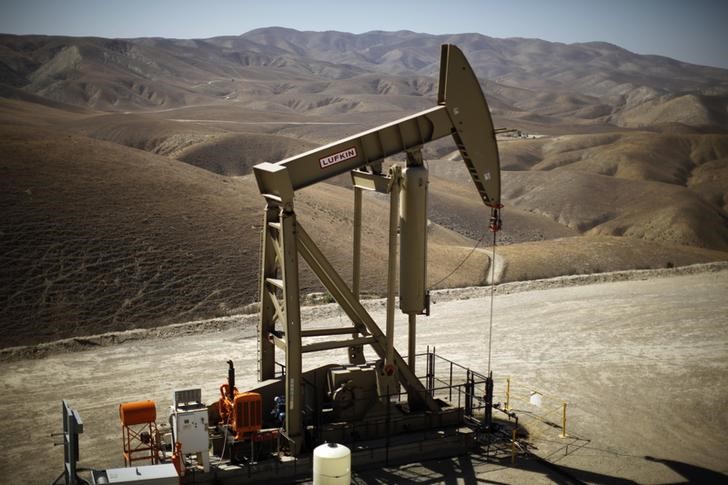Investing.com - West Texas Intermediate oil futures rebounded from the previous session's steep declines on Thursday, but prices held below the $50-level amid ongoing concerns over a global supply glut.
On the New York Mercantile Exchange, crude oil for September delivery tacked on 26 cents, or 0.53%, to trade at $49.45 a barrel during U.S. morning hours. On Wednesday, Nymex oil futures fell to $49.04, a level not seen since April 2, before closing at $49.19, down $1.67, or 3.28%.
Oil's losses on Wednesday came after the release of disappointing weekly data on U.S. oil inventories.
Crude oil inventories unexpectedly rose by 2.5 million barrels last week to 463.9 million, according to the U.S. Energy Information Administration. Market analysts' expected a crude-stock fall of 2.3 million.
Supplies at Cushing, Oklahoma, the key delivery point for Nymex crude, increased by 813,000 barrels last week, above forecasts for an increase of 300,000.
New York-traded oil futures have been under heavy pressure in recent weeks as worries over high domestic U.S. oil production weighed.
According to industry research group Baker Hughes (NYSE:BHI), the number of rigs drilling for oil in the U.S. declined by seven last week to 638, snapping two weeks of gains.
However, U.S. oil production has held around 9.6 million barrels a day, the highest level since the early 1970s.
Elsewhere, on the ICE Futures Exchange in London, Brent oil for September delivery inched up 9 cents, or 0.17%, to trade at $56.23 a barrel after hitting an intraday low of $55.90, the weakest level since July 7. A day earlier, Brent lost 91 cents, or 1.6%, to end at $56.13.
London-traded Brent prices have been weighed by concerns over a resumption of Iranian oil exports, which could add to a global supply glut.
Iran and six world powers reached a long-awaited nuclear deal last week that would end sanctions on Tehran in exchange for curbs on the country's disputed nuclear program.
Iran reportedly hoards 30 million barrels of oil in its reserves ready for export. However, analysts largely estimate that Iranian crude exports could take several months to ramp up significantly.
Global oil production is outpacing demand following a boom in U.S. shale oil production and after a decision by the Organization of Petroleum Exporting Countries last year not to cut production.
The spread between the Brent and the WTI crude contracts stood at $6.78 a barrel, compared to $7.09 by close of trade on Wednesday.
